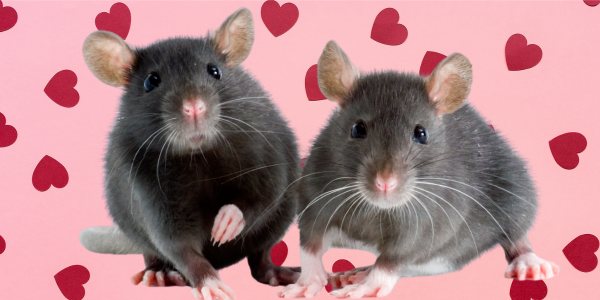
Rodent Romance: Understanding Mating Habits of Mice and Rats
While rodents like mice and rats may not typically be associated with romance, understanding their mating habits is crucial for effective rodent control. These small creatures reproduce at astonishing rates, making them a common nuisance in homes and businesses alike. This week, in honor of Valentine’s Day, we’re exploring the fascinating world of rodent romance, shedding light on the mating behaviors of mice and rats and offering insights into effective rodent control strategies.
Mating Habits of Mice
Love is always in the air for mice, who boast an impressive ability to multiply year-round. Female mice can reproduce at six weeks old, with males catching up slightly after. puberty in a mere six weeks, while their male counterparts catch up slightly later. This means frequent mating sessions resulting in multiple litters per year!
The gestation period for mice is remarkably short, clocking in at just 19 to 21 days. Once the little ones arrive, they waste no time growing up, quickly becoming weaned and independent within a matter of weeks. It’s a whirlwind cycle of life, ready to begin anew at the drop of a hat—or a squeak, in this case! This rapid reproduction cycle means that a few mice in your home can quickly turn into a full-blown rodent infestation in no time.
Mating Habits of Rats
Rats, much like their smaller counterparts, mice, are masters of reproduction and adaptation. These creatures are prolific breeders, with female rats capable of giving birth to litters of up to a dozen pups multiple times a year. Their gestation period lasts around 21 to 23 days, ensuring a swift turnover in generations.
But it’s not just the quantity of offspring that’s impressive; it’s also the complexity of their social lives. Rats are known for their intricate social structures and mating behaviors. They engage in aggressive courtship rituals, with dominant males vying for the chance to mate with females, who may entertain multiple suitors. This opportunistic breeding behavior means that even a few rats can quickly result in a rodent infestation if left unchecked.
Rodent Control Strategies
Given the rapid reproductive rates of mice and rats, effective rodent control is essential to prevent infestations. Here are some key strategies for managing rodent populations:
- Seal Entry Points: Rodents can enter buildings through tiny cracks and openings. Seal any gaps in walls, doors, and windows to prevent access.
- Remove Food Sources: Keep food stored in airtight containers and clean up spills promptly to deny rodents a food source.
- Declutter: Clear out excess clutter from your home or business, as rodents often seek refuge in cluttered areas.
- Practice Sanitation: Keep indoor and outdoor areas clean and free of clutter to eliminate hiding spots and nesting sites for rodents.
- Seek Professional Help: If you’re dealing with a severe rodent infestation, don’t hesitate to contact a professional pest control service like Knockout Pest Control. Our experienced technicians can assess the situation and implement targeted rodent control measures to eradicate the problem effectively.
Don’t Let Rodents Ruin Your Valentine’s Day!
Understanding the intricate mating habits of mice and rats is your key to effective rodent control. Don’t wait until you’re sharing your Valentine’s dinner with unwanted guests! Reach out to Knockout Pest Control today for expert rodent control services and reclaim your space from these pesky intruders.

